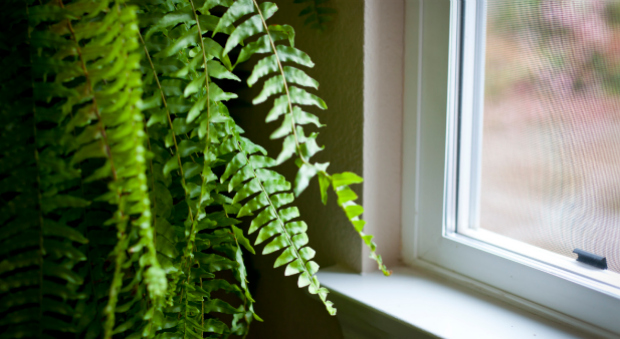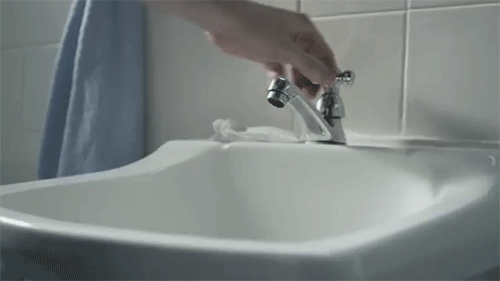It is easy being green. Going green doesnt have to mean committing to a 10-mile walk to work or abiding by "if its yellow, let it mellow"you can make a difference by making small adjustments that add up to big change. Here are 11 ideas to get you started.
1. USE YOUR DISHWASHER.
It may seem counterintuitive, but your dishwasher is way more energy- and water-efficient at washing dishes than you are, as long as youre running a full dishwasher. According to one German study, dishwashers use half of the energy and a sixth of the water, not to mention less soap. So, dont feel guilty about skipping the sink of sudsy water, or about not pre-rinsing before loading up the machineyoure actually doing the environment a favor by firing up your dishwasher.

2. SWITCH TO ONLINE BILL PAY.
Not only is it convenient to pay all of your bills with a click or two, its also environmentally friendly. One study found that the average U.S. household receives 19 bills and statements from credit card companies, banks, and utilities every month. By switching to online statements and online bill pay, each American household could save 6.6 pounds of paper per year, save 0.08 trees, and not produce 171 pounds of greenhouse gasses. Not bad for simply clicking a few "receive online statements" boxes.


3. OPT OUT OF JUNK MAIL.
While youre paring down the amount of stuff that arrives daily in your mailbox, visit Catalog Choice to opt out of various mailers you dont want to receive. So far, the nonprofit organization says they have saved more than 500,000 trees, over one billion pounds of greenhouse gas, more than 400 million pounds of solid waste, and approximately 3.5 billion gallons of water.


4. PLANT A TREE OR TWO.

Planting trees is obviously great for the environment, but if youre strategic about it, it can help you reduce your energy costs and use less fossil fuel. According to ArborDay.org, planting large deciduous trees on the east, west, and northwest sides of your house can shade and cool your home during the warmer months, even slashing your air conditioning costs by up to 35 percent.

5. TURN OFF THE TAP.
If you leave the tap running while you tend to your pearly whites, youre wasting approximately 200 gallons of water a month. Just turn the tap on when you need to wet your brush or rinse, instead of letting H20 pour uselessly down the drain. The same goes for anyone who shaves with the water running.


6. GO THRIFTING.

Take some advice from your old pal Macklemore and hit up some thrift shopsand that goes for whether youre getting rid of clutter or adding more to your home. Buying and donating to thrift stores and second-hand shops means youre recycling, supporting your local economy, and saving money. In fact, by some estimates, every item of clothing donated reduces 27 pounds of carbon emissions.
7. GET A HOUSEPLANT.

And grab a little guy for your desk at work, too. House plants and desk plants have been proven to improve your mood and raise productivity, but they also purify the air by removing volatile organic compounds (VOCs) found in homes and offices. They also absorb carbon dioxide and increase the humidity. Low-maintenance plants include pothos, spider plants, jade, various succulents, and peace lilies.
8. GET SCRAPPY.
Cut up paper that has only been used on one side and use it to scribble reminders, notes, grocery lists, etc. Or flip it over for any kids you know to color on. (You can color on it, too, if you want.)
9. PUT YOUR CAFFEINE TO WORK.
Your coffee likely traveled thousands of miles to arrive in your pantry, so get good use out of it. Use your grounds to mulch plants that love acidic soil, like roses, evergreens, and rhododendrons. If your garden problems tend to be less about the dirt and more about the things that live in it, certain garden denizens hate coffeenamely ants, slugs, and snails. Sprinkle grounds in problem areas to deter them.
10. ENLIGHTEN YOURSELF.

Compact fluorescent bulbs (CFLsthe spiral light bulbs) may cost more upfront, but theyll save up to $57 over the life of the bulb. More importantly, they use 70 percent less energy than traditional bulbs and installing them is as easy as screwing in a light bulb. (Insert joke here.)
11. MAKE TRACKS.
You don't have to cut out your daily driving entirely, but when you only have a few blocks, or perhaps just a mile or two to travel and don't need to transport anything bulky, consider walking or hopping on your bike. Walking on those short trips generates less than a quarter of the greenhouse gasses that are emitted by driving the same distance.

Source
|